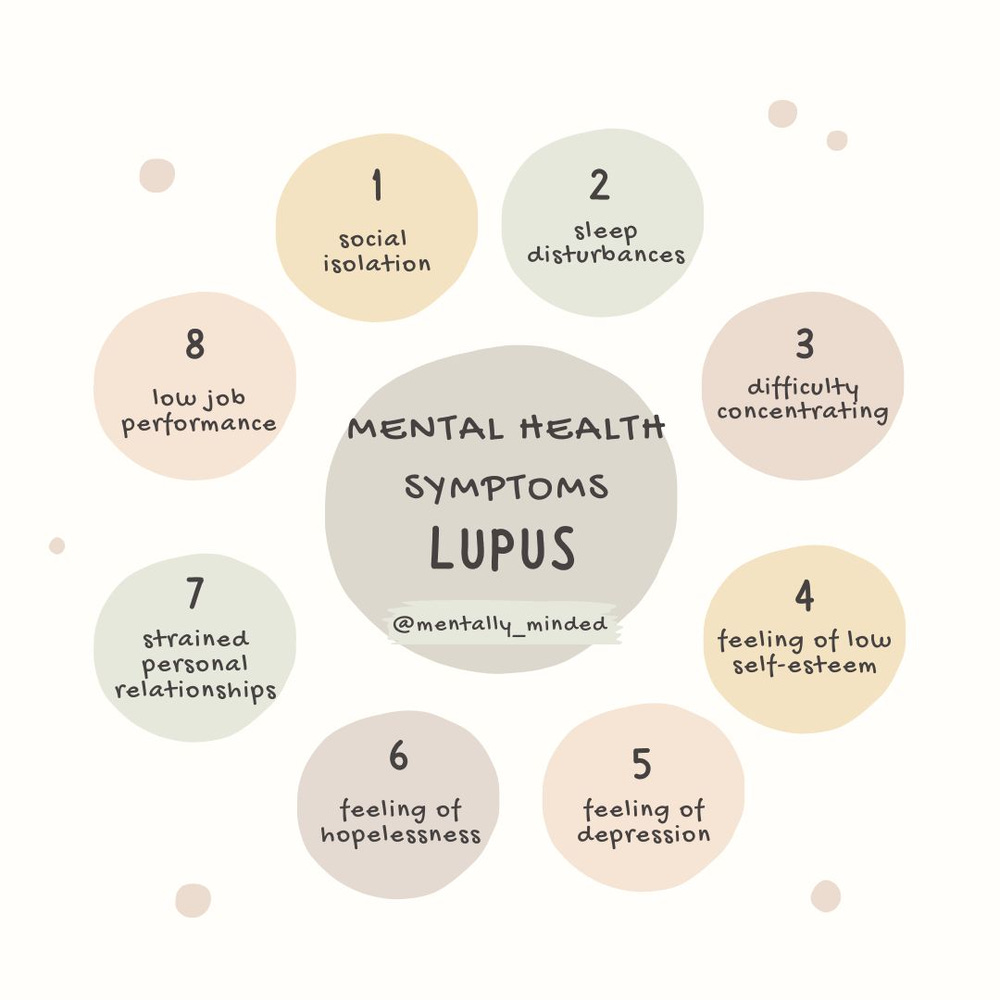Can lupus affect mental health?
By Teodora Stoica
Image Credit
When one country attacks another, the ambushed country may defend itself by sending in land, air or water protection. In the same way, your immune system is ready to strike any foreign invaders to keep your body in good health. But what happens when your own defenders launch a coup? This is the definition of an auto-immune disorder, which occurs when the body’s own immune system attacks and destroys healthy body tissue by mistake. Lupus is one example of an auto-immune disorder that attacks not only the body, but also the mind.
Lupus: A Mysterious Disease
The most common type of lupus is also called systemic lupus erythematosus or SLE. Lupus is a long-term inflammatory disease that affects multiple organs in the body and can cause joint pain, fever, organ damage and skin rashes (including the distinct butterfly rash on the face). In individuals with lupus, zealous heads of state (B &T immune cells) decide to launch a full scale attack, resulting in the heavily trained reserve military (autoantibodies) destroying innocent individuals (healthy body tissue). There is currently no cure. Lupus is not contagious and for the majority of people living with the disease, it will not be fatal. Although the cause is unknown, it’s thought that the hormone estrogen may play a part in this condition since lupus is more prevalent in women than in men.
Lupus affects African-American, Hispanic, Asian and Native American women to a greater extent than Caucasian women, but the reason for this too, remains a mystery.
The majority of drugs used to treat lupus (for example steroids) suppress the overactive immune system, although not always successfully and with side effects.
Experts have a difficult time estimating how many people in the United States have lupus because it is difficult to diagnose. Some even call the disease “the great imitator”, as it is often confused for other illnesses. Compounding the problem is the manifestation of psychiatric symptoms associated with the disease, side effects of medications, and/or psychosocial stresses from chronic lupus. None of this is fully understood.
The latest neuroscience research suggests that lupus affects the protective layer which surrounds blood vessels in the brain, called the blood-brain barrier, allowing toxins to penetrate and damage brain tissue.
Specifically, the insulation (myelin) protecting neural tissue may be attacked, causing widespread problems throughout the brain.
Linking physical symptoms to mental health
Scientists have made some connections between disease symptoms, how they impact physical, social and occupational aspects, and how in turn, that may impair mental health. Compromised mental status also may impact lupus treatment such as adherence to medication and whether or not active coping strategies are used (Figure 1).
Figure 1: Symptoms of lupus and disease activity impact mental health, which in turn may impact lupus treatment. Image Credit.
Some of the most common mental health symptoms of lupus include, but are not limited to:
Difficulty concentrating, or “lupus brain fog”, is the most common mental health problem in lupus patients with a prevalence rate ranging from 20% to 80%.
Second is fatigue, with 53-80% of patients reporting it as one of their primary symptoms, and major depression affecting 25% of lupus patients, and major anxiety affecting 37% (Figure 2).
Figure 2: Frequency of mental health problems reported by patients with lupus
These same symptoms may result from the lupus treatment itself. For example, “steroid psychosis” has been used to describe the depression, mania and confused states of euphoria that may follow treatment with steroids. It should be noted that steroid treatment doesn’t commonly cause psychosis, but may cause other milder emotional changes.
In-flaming the lupus situation
As a result of the many factors impacting both their physical and mental health, lupus patients may feel grief for the losses around their personal independence and social connections, shame about the way they are looking, and frustration or anger at their diagnosis.
An added burden is that individuals with lupus commonly encounter stigma in their search for answers, as health care providers often believe they are “making it all up.”
Due to the complexity of the disease and the multi-directional nature of the symptoms, it’s important to pay attention to both the patient’s emotional and physical health. As we have written before, a physical disease is intertwined with the mind, and until we understand more about how this mysterious disease attacks our bodies, we would do well to not attack each other.
For those struggling with lupus, remember that you’re not alone. Many people with lupus find it helpful to seek out support groups where you can connect with others who are also dealing with lupus symptoms.
This website does not provide medical advice. No material on this site is intended to be a substitute for professional medical advice, diagnosis or treatment. Always seek the advice of your physician or other qualified healthcare provider with any questions you may have regarding a medical condition or treatment, and never disregard professional medical advice or delay in seeking it because of something you have read on this website.
Thank you to our community member who asked this question! If you have any questions about mental health, send them over to our questions tab or reach out to us on Twitter!
This article has been written solely with evidence-based sources. Check them out below!
Anxiety and Depression is common in people with lupus
Mental Health of among people with lupus during Covid-19
Anxiety symptoms in people with lupus
Fatigue symptoms in people with lupus
Effects of lupus medications on mood
Psychological and Psychiatric problems in people with lupus
Links between inflammation and the brain| Harvard Medical School
Neuropsychiatric Systemic Lupus Erythematosus | Bentham Science






